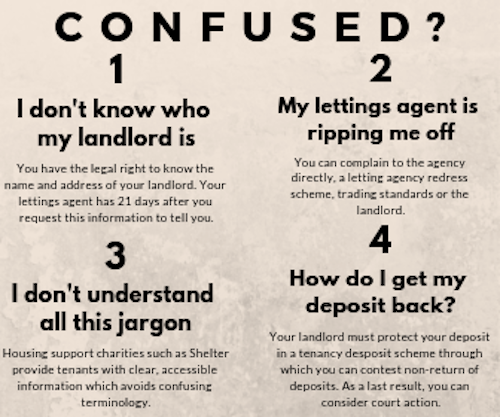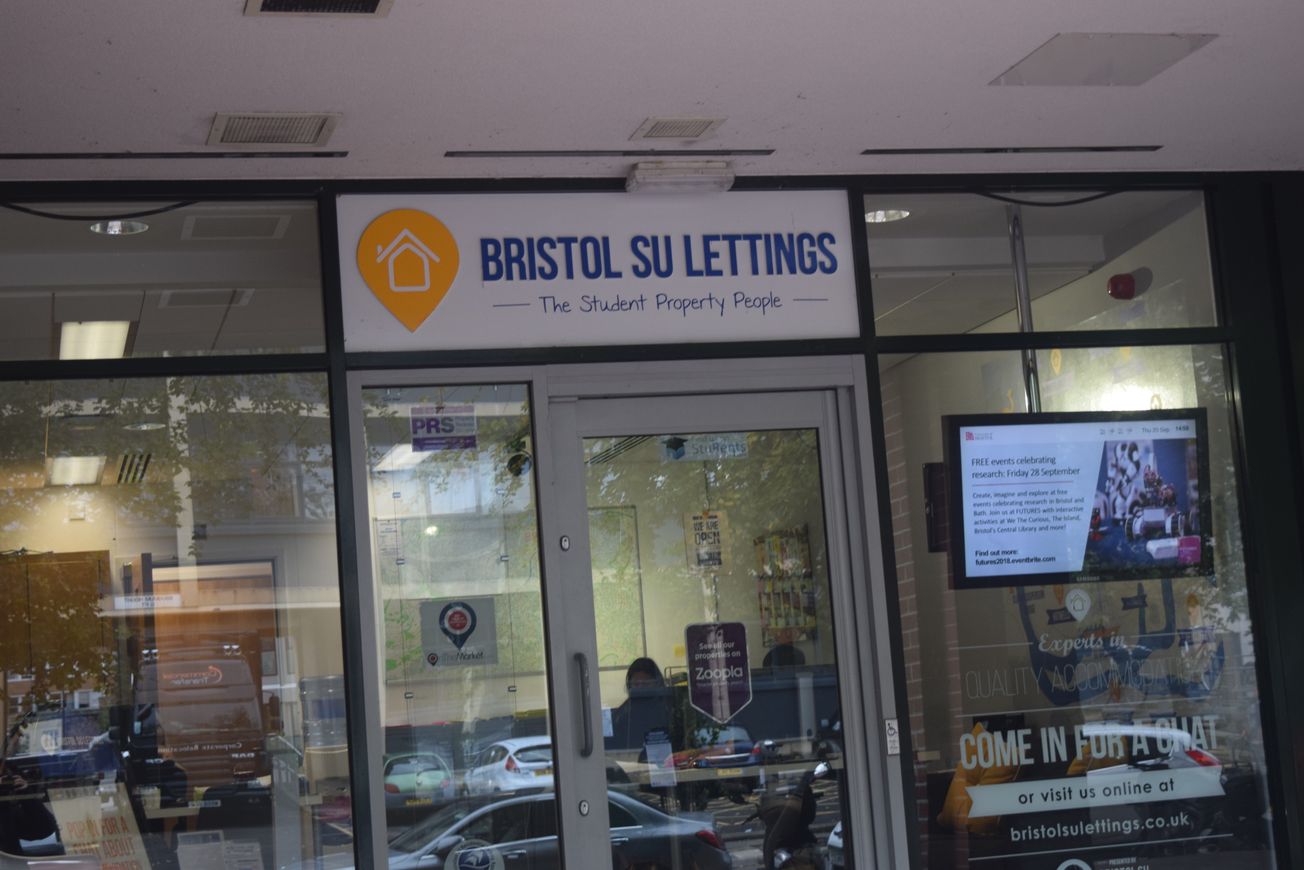By Tom Taylor, Deputy Features Editor
With exams approaching and bursts of sunshine to be enjoyed, the last thing students want to be confronted with is problems with their housing. But if your renting situation does start to go awry, we've got you covered.
My landlord won't give my deposit back
When you first moved into your accomodation, you will have a paid a deposit. At the end of your tenancy the landlord is allowed to make deductions to this sum of money or take the entire deposit. It is important, therefore, to know your rights.
These deductions can be for things like unpaid rent, damage to the property, missing items and cleaning costs. The landlord, however, cannot act with impunity. They can't withhold parts of the deposit for issues like re-letting and unpaid bills, even if your name is on the bill. The landlord must tell you about any deductions they are making and state how much money they are taking.

Image: Canva / Tom Taylor
Landlords can deduct for 'damage' which includes things like burns, damaged paintwork and torn curtains. They cannot deduct money for what's called 'normal wear and tear'. This means issues like worn carpets, minor scrapes and scuffs on walls.
If your landlord does decide to deduct from your deposit, they will usually refer to an inventory made at the beginning of the tenancy agreement. You can read more about inventories and tenancy agreements in Epigram's article earlier this year.
Most students will have signed an assured shorthold tenancy agreement which means that the landlord must protect your deposit in a tenancy deposit scheme. This scheme will either be custodial or insurance-based. Check the information you were sent when you paid the deposit to find out.
Custodial scheme
A custodial scheme means that the landlord doesn't actually hold the despoit. Instead, organisations such as mydeposits, Tenancy Deposit Scheme (TDS) and Deposit Protection Service (DPS) hold the money.
The scheme can refund your despoit if your case is deemed deserving, even if you have no contact details for your landlord.
The service can only deal with whether your deposit should be returned in part or in full. It cannot award compensation which requires court action.
Insurance-based scheme
If your landlord doesn't return your deposit within ten days of a written request, the scheme will order the landlord to pay the disputed amount to them and hold the deposit until the dispute is resolved.
If the dispute has still not been resolved, you can consider taking court action.
My lettings agency is rubbish
Students can often feel like lettings agencies take advantage of their lack of knowledge about private renting. It can be frustrating to be on the receiving end of jargon filled emails and pressure tactics.
If you feel like your agency has treated you poorly this year, here is what to do:
Complain directly to the agency, clearly setting out your case and providing evidence when necessary. The agency should investigate and inform you of their findings.
Complain to a letting agency redress scheme, of which all letting agents must be members of. Schemes like these can help you if your agency has behaved unprofessionally but cannot resolve disputes about fees or charges.
Complain to a letting agent's professional association such as the National Approved Lettings Scheme or The Association of Residential Letting Agents.
Complain to trading standards by contacting the Citizens Advice consumer helpline.
Make a claim through a small claims court for a dispute over money.
Help! I'm getting evicted
Your landlord cannot tell you to immediately leave the property you are renting. Landlords have to go through a legal process to evict a tenant.
There are two key ways landlords can evict you:
Section 21
These controversial notices of eviction do not require the landlord to give you a reason to end the tenancy. You can challenge the notice in court if you think it is invalid.
Section 8
Your landlord must give you a legal reason to end the tenancy which can include being in rent arrears and breaking the terms of your tenancy agreement.
If you are facing eviction, go to Bristol City Council for help and advice.
Information provided in this article is from Shelter.org.uk
Featured Image: Epigram / Tom Taylor
Have you had a bad renting experience? Let us know.








